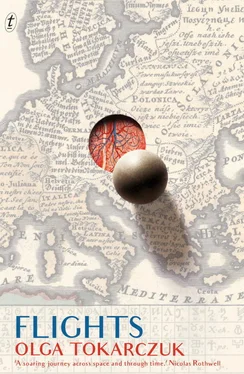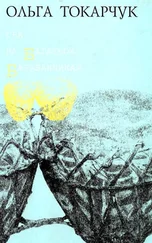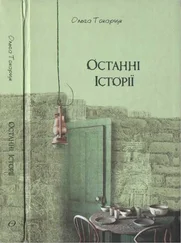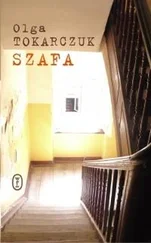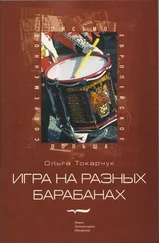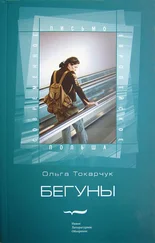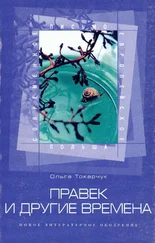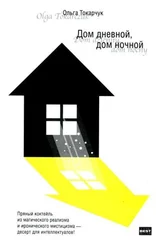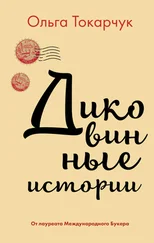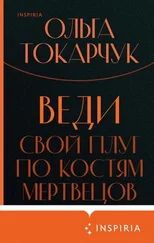‘Fine. You didn’t tell me what really…’
But he doesn’t finish, because she throws the tea on the floor and runs out of the kitchen. After a second the door slams.
Kunicki thinks she’s a great actress. She could have been a great actress.
He’s always known what he wanted. Now he doesn’t know. He doesn’t know anything, he doesn’t even know what it is he ought to know. He pulls out trays of catalogues and inattentively looks over boxes impaled on skewers. He doesn’t know how to search or what to search for.
He sat up the whole previous night on the internet. And what did he find? An inexact map of Vis, the official Croatian tourism page, the ferry schedule. When he typed in the name Vis, dozens of pages came up. Only a few about the island. Hotel prices, attractions. Also Visible Imagine System, in English, with satellite photos, as far as he could tell. And Vaccine Information Statements, Victorian Institute of Sport. And System for Verification and Synthesis.
The internet itself led him from one word to the next, giving links, pointing out. When it didn’t know something it tactfully kept quiet or stubbornly showed him the same pages, ad nauseam. Then Kunicki had the impression that he had just landed at the border of the known world, at the wall, at the membrane of the heavenly firmament. There wasn’t any way to break through it with his head and look through.
The internet is a fraud. It promises so much – that it will execute your every command, that it will find you what you’re looking for; execution, fulfilment, reward. But in essence that promise is a kind of bait, because you immediately fall into a trance, into hypnosis. The paths quickly diverge, double and multiple, and you go down them, still chasing an aim that will now get blurry and undergo some transformations. You lose the ground beneath your feet, the place where you started from just gets forgotten, and your aim finally vanishes from sight, disappears in the passage of more and more pages, businesses that always promise more than they can give, shamelessly pretending that under the flat plane of the screen there is some cosmos. But nothing could be more deceptive, dear Kunicki. What are you, Kunicki, looking for? What are you aiming at? You feel like spreading out your arms and plunging into it, into that abyss, but there is nothing more deceptive: the landscape turns out to be a wallpaper, you can’t go any further.
His office is small, it’s a single room he rents for cheap on the fourth floor of a dilapidated office building. Next door there’s a real estate agency, and further down a tattoo parlour. What fits in here is a desk and a computer. On the floor lie packages of books. On the windowsill an electric kettle and a jar of coffee.
He cranks up the computer and waits for it to wake back up. Then he lights his first cigarette. He looks at the pictures again, but this time he carefully studies each one, for a long time, until he gets to the ones he took at the end – the contents of her purse laid out on the table, and that ticket with the inscription ‘Kairos,’ yes, he’s even memorized that word: καιρóς. Yes, that word will explain everything to him.
So he has found something he hadn’t noticed before. He has to light a cigarette, he’s so excited. He looks at that mysterious word, it will guide him now, he’ll let it up with the wind like a kite and follow it. ‘Kairos,’ Kunicki reads, ‘Kairos,’ repeating it, unsure how it’s pronounced. It has to be Greek, he thinks happily, Greek, and he dives into his bookshelves, but there’s no Greek dictionary there, only Useful Latin Phrases , a book he’s never even opened. Now he knows he’s on the right track. Now he can’t stop. He lays out the pictures of the contents of her purse, good thing he thought to take them. He places them next to one another like in solitaire, in even rows. He lights another cigarette and walks around the desk like he’s some kind of detective. He stops, inhales some smoke, examines the photographed lipstick and pen.
Suddenly he realizes: there are different kinds of looking. One kind of looking allows you to simply see objects, useful human things, honest and concrete, which you know right away how to use and what for. And then there’s panoramic viewing, a more general view, thanks to which you notice links between objects, their network of reflections. Things cease to be things, the fact that they serve a purpose is insignificant, just a surface. Now they’re signs, indicating something that isn’t in the photographs, referring beyond the frames of the pictures. You have to really concentrate to be able to maintain that gaze, at its essence it’s a gift, grace. Kunicki’s heart starts beating faster. This red pen with ‘Septolete’ written on it is obscuring some dark unknowable, impenetrable thing.
He knows this place, the last time he was here was when the water was going back down, just after the flood. The library, the respectable Ossolineum, sits by the river, faces it, a fatal error. Books should be kept in elevated places.
He remembers that view, when the sun showed itself again and the water was subsiding. The flood brought in sludge and mud, but some places had been cleared, and the library workers were laying out books there to dry. They set them out, open, on the floor, there were hundreds of them, thousands. In that position, unnatural for them, they looked like live creatures, a cross between a bird and an anemone. Hands in thin latex gloves patiently unsticking wet pages, in order for individual sentences and words to dry. Unfortunately the pages withered, darkened from the sludge and water, warping. People were walking between them carefully, women in white aprons, as at a hospital, opening volumes to the sun, letting the sun read. But in fact it was a terrifying sight, something like a meeting of the elements. Kunicki stood and looked on in horror, and then, animated by the example of some other passer-by, joined in enthusiastically to help.
Today at the library in the city centre, beautifully renovated after the flood, tucked away in buildings arranged around the well in the courtyard, he feels uneasy. When he goes into the great reading room he sees tables placed in even rows at discreet distances from one another. At almost every single one sits someone’s back – leaning over, hunched. Trees over a grave. A cemetery.
The books set on the shelves show only their spines to people, and it’s as though, thinks Kunicki, you could only see people in profile. They don’t tempt you with their colourful covers, don’t boast with banners on which every word is a superlative; as though being punished, like recruits, they present only their most basic facts: title and author, nothing more.
Instead of folders, posters and commercials there are catalogues. The egalitarian quality of those little cards stuffed into drawers inspires respect. Only a little information, numbers, a short description, no showing off.
He’s never been here. When he was at university he only used the modern library. He wrote out a title and author on a card and turned it in and after a quarter of an hour received the book. But even there he didn’t go too often, in truth he went only exceptionally, since most of the texts he needed he got Xeroxed. That was a new generation of literature – text without spine, fleeting copy, something like the Kleenex that took the helm after the abdication of cloth handkerchiefs. Kleenexes led a modest revolution, eliminating class differences. After using them once you just threw them away.
He has three dictionaries in front of him. Greek-Polish Dictionary. Edited by Zygmunt Węclewski, Lwów 1929. Samuel Bodek Bookstore, Batory Street 20. Little Greek-Polish Dictionary. Eds. Teresa Kambureli, Thanasis Kamburelis. Published by Wiedza Powszechna, Warsaw, 1999. And the four volumes of Greek-Polish Dictionary edited by Zofia Abramowiczówna, 1962. Published by PWN. There, with difficulty, using the tabular alphabet, he deciphers the word: καιρóς.
Читать дальше
